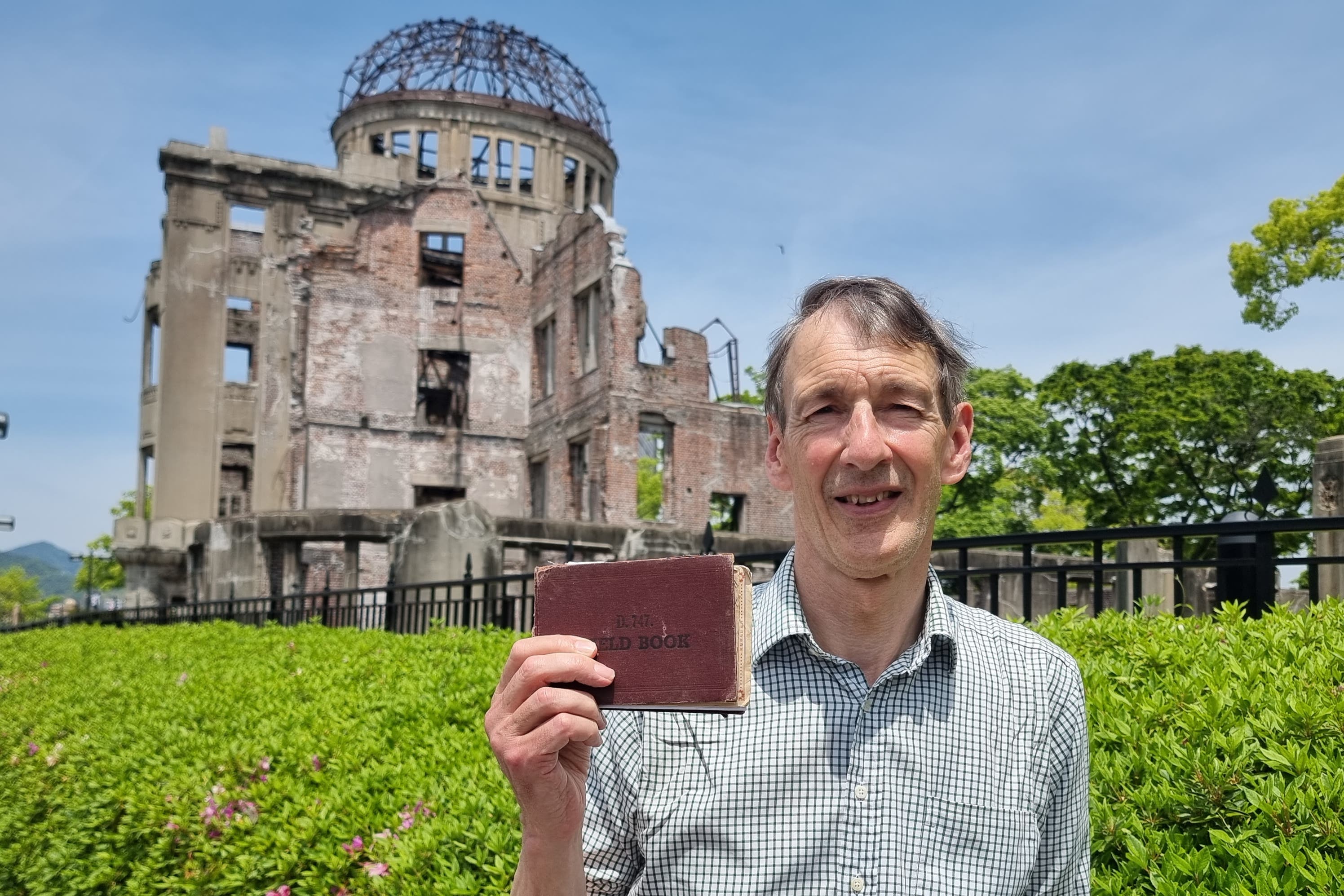Minister makes emotional pilgrimage to Japan to honour POW father
Rev Ian Gilmour travelled more than 5,600 miles to the city of Hiroshima where his father David Gilmour was held in a camp for over three years.

Your support helps us to tell the story
As your White House correspondent, I ask the tough questions and seek the answers that matter.
Your support enables me to be in the room, pressing for transparency and accountability. Without your contributions, we wouldn't have the resources to challenge those in power.
Your donation makes it possible for us to keep doing this important work, keeping you informed every step of the way to the November election

Andrew Feinberg
White House Correspondent
A minister has fulfilled a 60-year dream to make a pilgrimage to Japan in honour of his late father who was kept prisoner there during the Second World War.
Rev Ian Gilmour, a retired Church of Scotland minister from Edinburgh, travelled to Hiroshima where Private David Gilmour was held in a work camp for more than three years.
The camp was liberated after the American B-29 bomber Enola Gay dropped an atomic bomb over the city on August 6, 1945.
Private Gilmour, of the Royal Army Service Corps, was captured by the Japanese during the Battle of Singapore in February 1942.
He was badly mistreated when he imprisoned, forced to work on a minuscule diet of poor-quality rice and suffered from Beriberi disease and dysentery due to malnutrition.
Private Gilmour was in and out of hospital during his captivity and only weighed six stone when he was finally set free on August 15 1945.
Despite his ordeal he was not bitter towards the Japanese and told his family he wanted to return to the country one day to experience it during peacetime.
He never returned, however, as he died in 1963 aged 45.
Rev Gilmour was just seven when his father passed away, and for the following 60 years he longed to fulfil his father’s dream and visit Hiroshima.
He was unable to find the exact location of the camp as it is not a place the Japanese choose to remember, so he instead visited the Hiroshima Peace Memorial.
He placed his father’s British Army field book on an altar surrounded by flowers and prayed for peace during his stay.
“It was very moving and I feel that I honoured my father’s memory – it felt good and right and it meant a lot to me,” he said.
“It was important for me to take his army field book so that there was something owned by him going back to Japan.
“It was an upsetting experience as I reflected on what happened to him, his fellow prisoners of war and the tens of thousands of civilians who died after the bomb was dropped.
“It was emotional as it allowed me to better value his life and what he went through and acknowledge that my life and my family’s life came out of terrible suffering.
“So, in a sense, my life was dependent on a horrendous event that my father survived.”
Rev Gilmour said his father had a strong desire to survive the war and get home to Glasgow.
“He only had one sister and she had died just before the war of scarlet fever and his mother was a widow and had nobody else in the world,” he said.
Private Gilmour was 27 when he returned to Glasgow and went on to work for a building materials supply merchant, and later the publishing house Collins.
“He and my mother had three sons, Jim, Stewart and myself,” Rev Gilmour said.
“He spoke about his wartime experiences publicly only once after he was asked to give a talk at his home church, Chalmers Church in Glasgow.
“My mother was in the congregation, but they did not know each other before then and that is where they met.
“However, after he gave the talk at the church he ripped out several pages of the field book and never spoke about his experiences again.”
Subscribe to Independent Premium to bookmark this article
Want to bookmark your favourite articles and stories to read or reference later? Start your Independent Premium subscription today.